Oncology, the study of cancer treatment, has made big strides in recent years. It’s expected that 2,001,140 new cancer cases will be diagnosed in the U.S. in 2023. Sadly, 611,720 people will die from it. For oncologists, keeping up with new treatments is key to giving the best care.
New technologies and methods are being developed to help patients. This means better chances of beating cancer. Early detection and new treatments are changing how we fight cancer.
Genomic sequencing can find cancer early, when it’s easier to treat. Liquid biopsies offer non-invasive tests for cancer. These tests can lead to quicker and more effective treatments.
AI helps doctors make treatment plans based on a patient’s genes and health history. This makes treatments more effective. Wearable devices also help by tracking vital signs, leading to better care for cancer patients.
Cancer treatment has improved a lot, but there’s more work to do. Researchers are working hard to find new ways to fight cancer. Digital health technologies are helping speed up this research.
Thanks to oncology, cancer patients get the best care. Researchers keep finding new ways to help patients. This means better chances of beating cancer.
Key Takeaways
- The estimated number of new cancer cases in the United States in 2023 is 2,001,140.
- 611,720 people are projected to die from cancer in the United States in 2023.
- Genomic sequencing plays a vital role in targeting therapies for specific genetic mutations.
- AI-driven clinical decision support systems offer personalized treatment plans.
- Remote health monitoring via wearable devices provides vital data on patient health.
- The integration of digital health technologies is expected to accelerate cancer research.
Understanding Modern Oncology: A Comprehensive Overview
Modern oncology has seen big changes, thanks to oncology research and digital health. Now, it uses many new technologies to better cancer diagnosis, treatment, and care. Things like electronic health records, mobile apps, and wearable devices are helping a lot.
Digital health has changed how we fight cancer. For example, AI can make cancer diagnosis 95% more accurate. Also, telemedicine lets patients get cancer care from home. This helps healthcare systems and makes patients happier.
Here are some important facts about oncology research and cancer care:
- Screening early can raise survival rates by up to 90% in some cancers.
- Immunotherapy and targeted therapy work for about 30% of patients with advanced cancers.
- Eating right can cut cancer risk by 30-50%. A diet full of fruits, veggies, and whole grains helps.
As oncology grows, we must keep focusing on oncology research and new cancer care ideas. Using digital health and pushing for early detection and prevention can make a big difference. This way, we can help patients more and lessen the impact of cancer on everyone.
Breakthrough Technologies in Cancer Detection and Diagnosis
New technologies in tumor treatment are changing how we fight cancer. Liquid biopsies are a big leap forward. They let doctors find cancer early and see how well treatments are working.
These tests look for tiny pieces of cancer in blood or other fluids. It’s a big step towards better cancer care.
Artificial intelligence (AI) is also making a big impact. The FDA has approved AI tools to help doctors spot cancer in prostate biopsies. AI is also getting better at finding breast cancer in mammograms.
- Predicting a person’s risk of pancreatic cancer based on population-level disease data
- Improving screening processes for cervical and prostate cancers through deep learning approaches for automated detection
- Enhancing precision oncology strategies by predicting how individual cancer cells respond to drug treatments
These new tools could lead to better care for cancer patients. As research keeps moving forward, we’ll see even more ways to fight cancer.
Revolutionary Approaches in Oncology Treatment Planning
Oncology treatment planning has changed a lot in recent years. Now, we use artificial intelligence, personalized plans, and genetic tests. These new methods aim to make treatments better and cut down on side effects. For example, AI helps make treatment plans by looking at big data.
These changes bring many benefits:
- More personalized treatments
- Better results for patients
- Fewer side effects
Genetic tests are a big part of this change. They help doctors find the right treatment for each patient. This way, treatments work better and are safer. Also, using genetic tests with chemotherapy and radiation makes treatments even more effective.
The future of treating cancer looks bright. With more research, we’ll see even better ways to plan treatments. AI will keep getting smarter, leading to better care and a better life for patients.
| Treatment Approach | Benefits |
|---|---|
| Chemotherapy | Targets rapidly dividing cancer cells |
| Radiation Therapy | Destroys cancer cells using high-energy radiation |
| Genetic Profiling | Enables targeted treatment strategies |
Advanced Immunotherapy Innovations
Immunotherapy has changed the way we treat cancer, giving hope to many. It uses the body’s immune system to fight cancer. This method has shown great promise in treating melanoma, lung cancer, and kidney cancer.
Cancer is a major cause of death in the U.S., with more cases and deaths each year. Immunotherapy is key in cancer treatment. Its success depends on the patient’s immune system and the tumor environment. Advanced immunotherapy innovations aim to help more patients and fight resistance.
New developments in immunotherapy include multispecific antibodies and immune cell engagers. These innovations could improve treatment results. For instance, AstraZeneca is working on new treatments that combine different approaches.

Investing in various cancer treatments can lead to better patient outcomes. Advanced data platforms use artificial intelligence to develop new treatments. As research advances, immunotherapy will likely play a bigger role in cancer treatment, with oncologists leading the way.
Targeted Therapy and Molecular Medicine in Modern Oncology
Targeted therapy has changed oncology research and cancer care for the better. It uses drugs to attack specific cancer molecules. This is thanks to molecular medicine, which studies cancer’s molecular roots.
Examples of targeted therapy include small molecule inhibitors and monoclonal antibodies. These treatments have shown great promise. For example, drugs targeting VEGF have been approved for advanced kidney cancer.
- Seven VEGF-targeted agents have been approved for advanced or metastatic RCC by the FDA.
- Response rates for anti-angiogenic therapies range from 10% to 40% in RCC trials.
- Targeted therapy has fewer side effects and works better than traditional chemotherapy.
As oncology research grows, so will better treatments for cancer. The global cancer cases are expected to hit 28.4 million by 2040. So, we need new, effective treatments now more than ever.
| Treatment Type | Response Rate | Side Effects |
|---|---|---|
| Targeted Therapy | 10-40% | Fewer side effects |
| Conventional Chemotherapy | Varies | More side effects |
Integration of Traditional and Emerging Treatment Methods
In modern oncology, mixing old and new treatments is key. This way, doctors can give patients many choices. These include surgery, chemotherapy, radiation, and immunotherapy, all part of full oncology care.
Recent numbers show over 14 million new cancer cases worldwide in 2012. About 8 million people died from cancer that year. Using both old and new treatments can make patients’ lives better and lighten the cancer load. For instance, immunotherapy is showing great promise in fighting cancer, making it a good mix with traditional methods.
Benefits of combining old and new treatments include:
- Improved patient outcomes
- More treatment choices
- Better quality of life
New treatments like targeted therapy and molecular medicine can be paired with traditional ones. This gives patients a wide range of options. Doctors can then do better for their patients and lessen the cancer impact.
To wrap it up, mixing old and new treatments is vital in today’s oncology. Doctors should aim to offer a full range of treatments. This includes both traditional methods like surgery and chemotherapy, and newer ones like immunotherapy and targeted therapy.
Patient-Centered Care in Contemporary Oncology Practice
Patient-centered care is key in cancer diagnosis and treatment. It focuses on the whole person, not just the illness. This approach boosts patient outcomes and improves life quality.
Supportive care, like counseling and pain management, is vital. It helps patients deal with the emotional and physical sides of cancer treatment. Studies show it leads to better care, more confidence, and trust in doctors.
Important parts of patient-centered care include:
- Clear explanations of treatment options and plans
- Emotional support and counseling
- Involvement in decision-making
These elements give patients a sense of control and empowerment. They help during the cancer journey.
Healthcare providers should put patient-centered care first. It leads to better patient outcomes and quality care. As more people live with cancer, focusing on each patient’s needs is critical.
Clinical Trials and Research Breakthroughs
Advances in oncology research have greatly improved cancer treatment options. Clinical trials are key in testing new treatments. Sadly, only 3% to 6% of eligible cancer patients join these trials.
Despite this, trials have led to new treatments like immunotherapies. These treatments have shown promise in curing cancers that were once thought incurable.
Pfizer and other big pharmaceutical companies are leading the charge in oncology research. They are running trials for over 20 cancer types, including bladder, breast, and lung cancer. These trials aim to find the best ways to use treatments together or at lower doses to reduce side effects.
The U.S. Food and Drug Administration (FDA) has approved several immunotherapies for various cancers. This makes them a standard part of cancer treatment.
There are many ongoing clinical trials looking for participants. These trials are for non-small cell lung cancer, advanced colorectal cancer, and untreated metastatic bladder cancer. They show our ongoing efforts to better cancer treatment options.
By joining clinical trials, we can help improve treatment outcomes and reduce side effects for cancer patients. This is why increasing participation in clinical research is so important.
| Cancer Type | Number of Clinical Trials |
|---|---|
| Lung Cancer | 150 |
| Breast Cancer | 200 |
| Colorectal Cancer | 100 |
Shaping the Future of Cancer Treatment: What Lies Ahead
The future of cancer treatment is full of hope. Advances in digital health, artificial intelligence, and precision medicine are changing the game. These technologies could make cancer care more personalized and effective, reducing side effects.
In 2022, the FDA approved 40 new cancer treatments, including 12 never-before-seen ones. Also, the U.S. saw over 18 million cancer survivors, showing how far we’ve come. New breakthroughs like immunotherapy and cell therapies are on the horizon. They promise to make treatments more precise and tailored to each patient.
With digital health, AI, and precision medicine, cancer treatment is set to get better. Patients will face less burden and receive care that focuses on them. The oncology community is excited to keep pushing the limits of science and technology. Together, we can make a big difference in the lives of those with cancer.
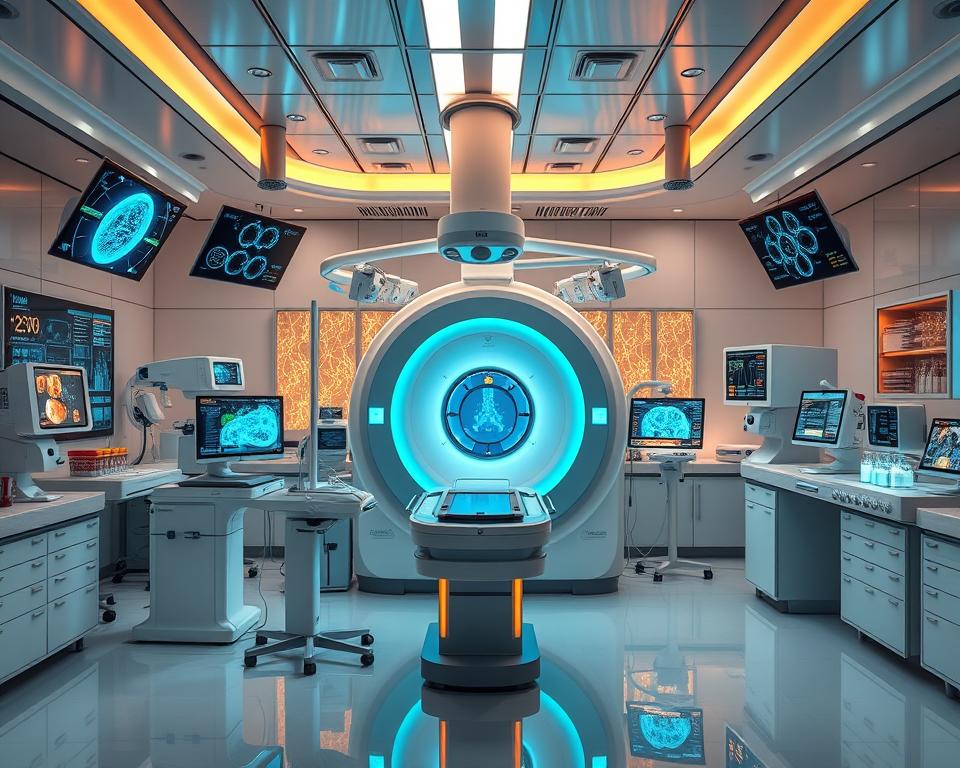


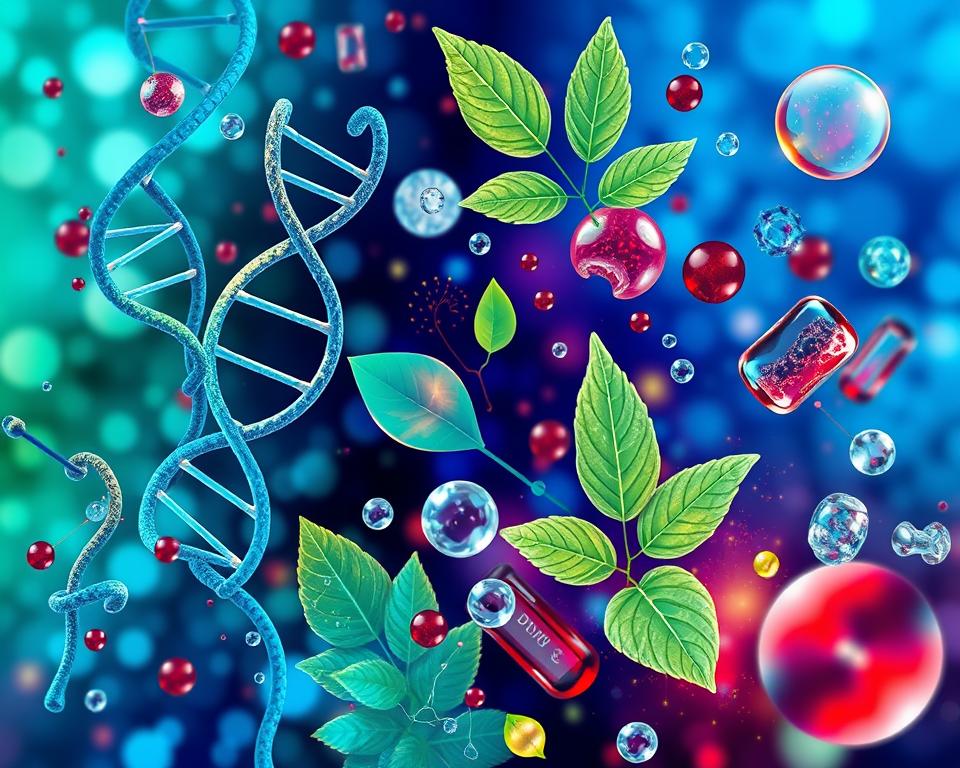
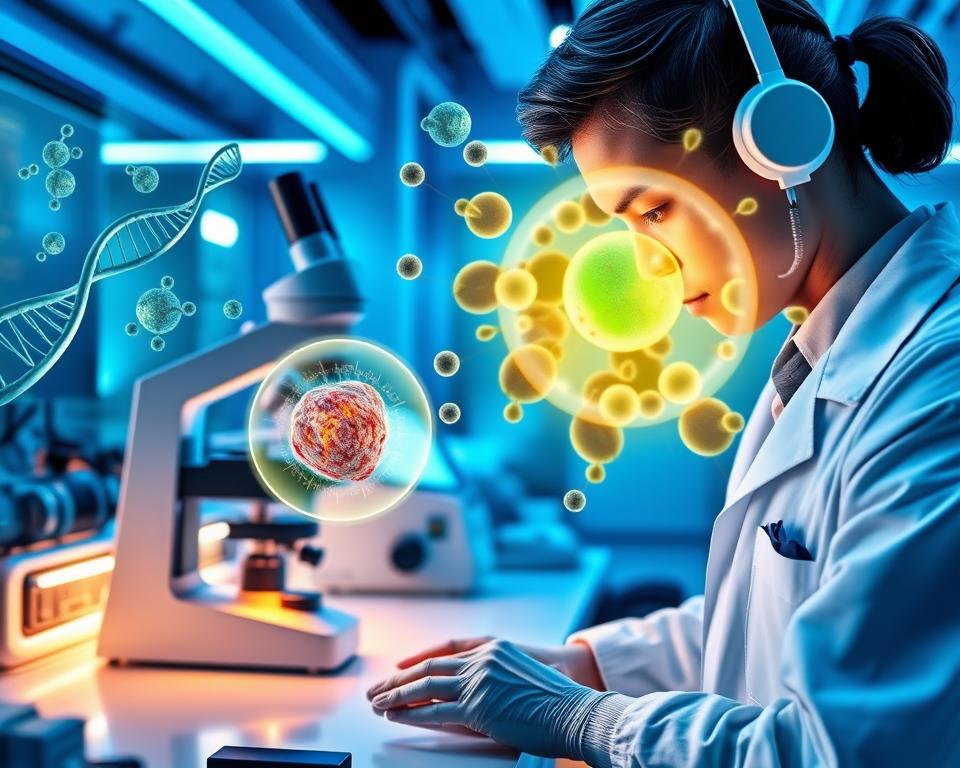
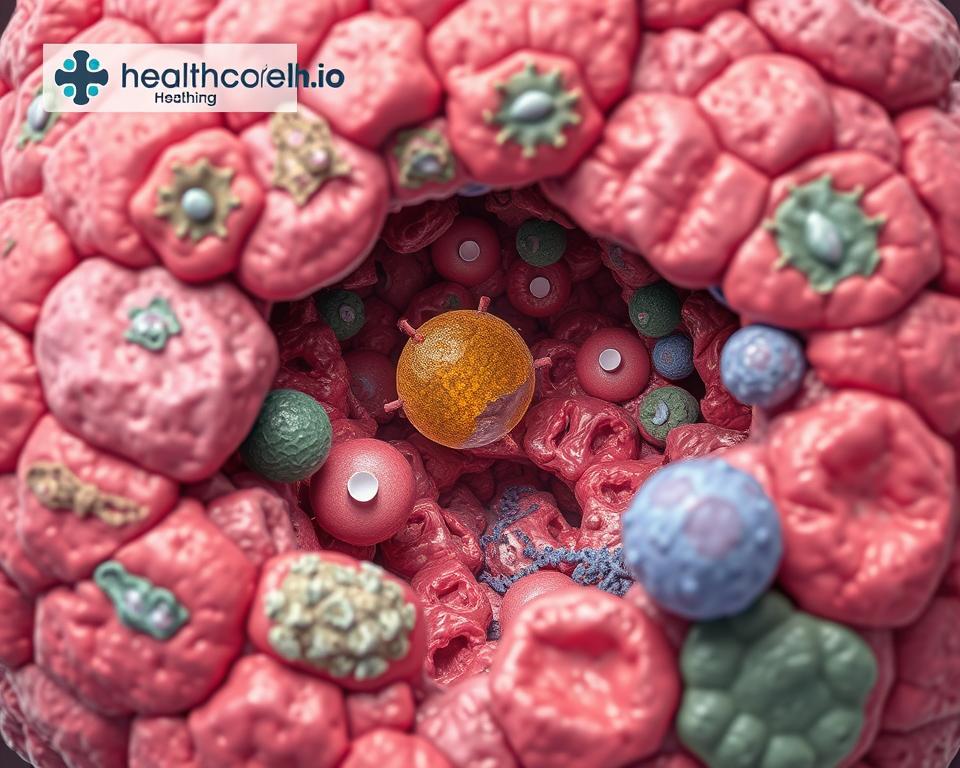
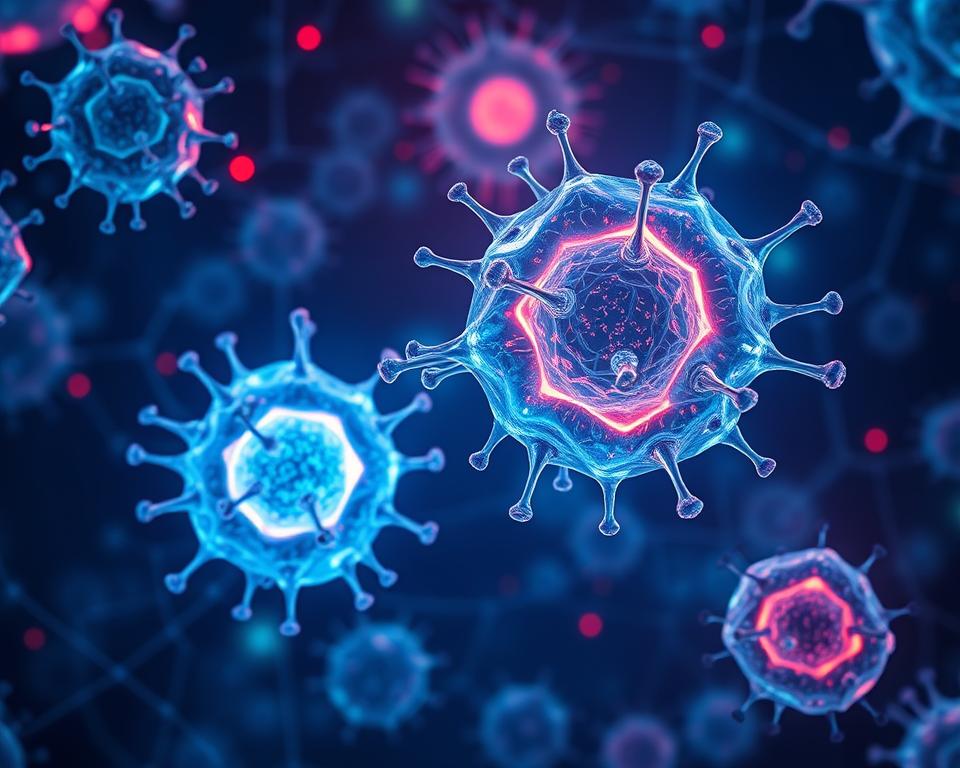



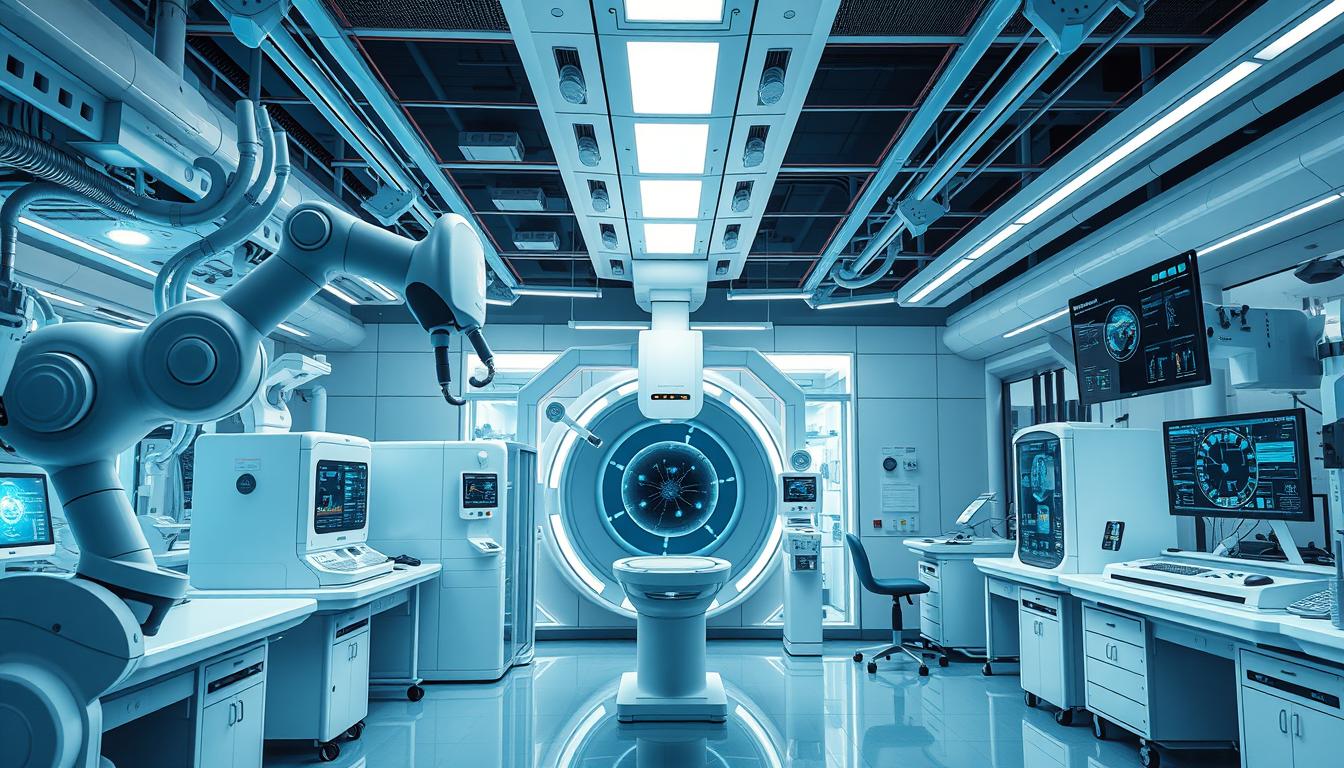


Leave a Reply